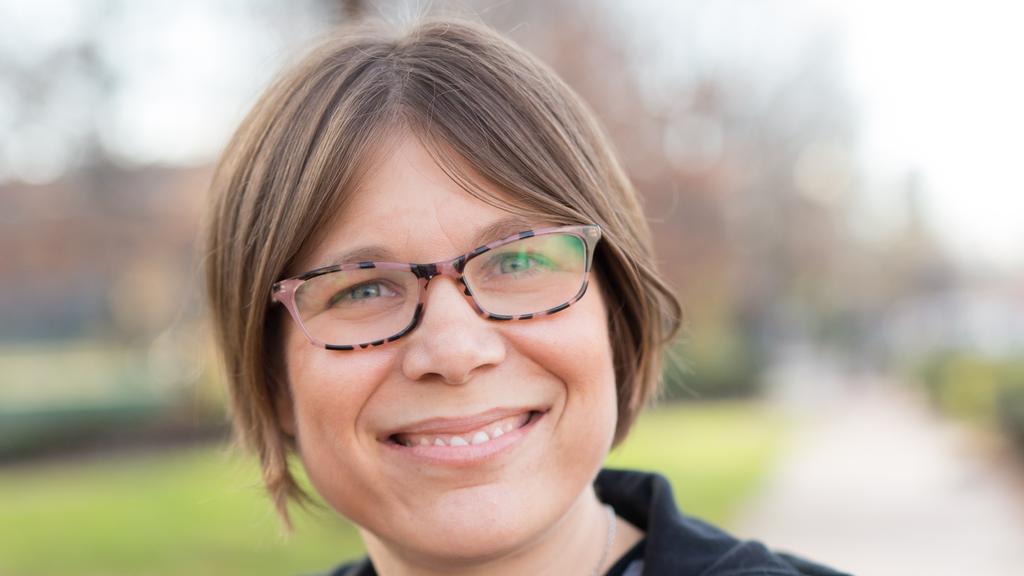Lisa Wise, CEO and founder of Flock DC, is no stranger to making her own opportunities. As a visionary thought leader and entrepreneur, her business has grown exponentially in a little over a decade, scaling up (and up) to own three subsidiaries with a fourth in the works — BirdWatch, which provides services for homeowners who miss having a landlord. Wise has never been afraid to go all-in with her business: “The only thing I ever risked was my time and talent — and, well, my sanity,” she jokes. “I chose to go in hard on an industry that was specifically about service, so there wasn’t a lot of disincentive for me to try.”
Twelve years ago, Wise founded Nest DC, a boutique property management company that creates sustainable urban communities. The success of Nest paved the way for Wise to create Roost DC, an employee-owned property management company for condo associations and cooperatives, and Starling DC, a property renovation and maintenance company. Today, Wise’s parent company, Flock DC, has more than 60 employees and manages over a billion dollars in property.
Wise grew up in Idaho “as an under-resourced kid born with a hammer in hand.” Her fondness of DIY projects and years of housing insecurity laid the foundation for her to eventually work in the housing space. In graduate school, Wise became a landlady for the first time when she sold the Honda Civic she inherited from her cousin for $8300, and used the cash to make the down payment on her adobe duplex in Tucson, Arizona.
“I was able to say, “OK, I own something that I can call my own sense of security,’” Wise explains. “Although I was responsible for the mortgage every month, my tenant was helping to offset those costs. I thought, ‘This is a pretty magical space to be in.’”
But first, Wise built herself a prosperous non-profit career, spending five years as the national field manager for Planned Parenthood Federation of America. Wise also served as the executive director for the Center for a New American Dream and the vice president of a health care advocacy organization in Washington, D.C.
“I grew up feeling like I wanted to make a difference in the world,” Wise explains. “The career that I pursued was very cerebral, and didn’t satisfy a lot of those tactical things I enjoyed doing.”

Making the shift from non-profit work to compassionate capitalism
Wise couldn’t ignore the urge to explore her entrepreneurial side. Despite the naysayers, she moved forward with building Nest — and her hard work paid off in spades.
“The work I’m able to do at Flock is more meaningful than any work I’ve ever done. It gives us a platform to be authentically engaged in creating the community that we want to be part of and tend to people in their own spaces,” Wise says.
Following the ‘leaders eat last’ philosophy underscored Wise’s commitment to help Nest take off. Refusing to take a salary for four years sustained her staff’s morale, Wise says. “I feel that decision alone established so much trust between me and our talent. They were willing to go the extra mile after seeing how much I was willing to give up to pay them first.”

Wise is a firm believer that disparities between leaders and employees create serious cracks in a company’s foundation. “I enjoy quite a lovely life,” Lisa says, as her son, Beckett, plays with their dog, Bird, in the background. “But I don’t need a Gulfstream (private jet), right? Leaders can create good jobs with livable wages and still profit.”
The key to scaling Nest DC: prioritizing staff
Being “wired for growth” made it easy for Wise to build the second bridge to Roost DC, she explains. Vision casting also streamlined the process. “When we hit 200 units under management, that was the moment at which I clearly knew I would be able to take a salary,” Wise says. “At the same time, we joked that we were building a property management house with duct tape, and it was collapsing on a foundation appropriate for a smaller portfolio.”
When she recognized that her ambitions had exceeded the limits of Nest’s capacity, Wise knew it was time to level up in her business. To create a larger, more complex business model — “not just a company that manages property, but managing a company that manages property — Wise did what she had always done: focused on her staff’s wellbeing first. It was how Roost became the only employee-owned property management group in the District.
“We built a culture that people wanted to be engaged in, one that was very much anchored in the heart and soul of our company,” she explains. “The spirit of teamwork has always been a hallmark of our work, so the employee ownership model is what got us there. Everybody wins if everybody’s working together.”
Going against the grain yielded big payoffs
Unlike many property management companies, Flock DC makes outstanding customer service and connecting with the community key to their values. The company makes waves in the industry not only by co-creating their workspace with employees, but also with a business model that defies norms in real estate.
“The traditional (real estate) business model is: Don’t answer the phone because there might be drama, and ignore the tenant until they stop calling. We’ve been exactly the opposite,” Wise says.
Wise admits that the company chose to not have an advertising and marketing budget, a potentially risky move. Instead, they promote themselves by lending a helping hand and elevating others. “In the past, we’ve done things like put on our Flock DC T-shirts and paint a building for a nonprofit that couldn’t afford to do that.”

The same goes for the company’s social media channels. “We almost never talk about property management, because it’s boring,” Wise laughs. “People care about where the properties are located and everyone who works hard to make their city a good place. We use our social media to give them visibility, and that helps us.”

Wise credits employees making measurable differences in the District as another reason for their enduring enthusiasm and commitment to the company. “The day-to-day drama in property management can bog you down and not be entertaining anymore really quickly. But if you can go to work and say that your company makes a difference in cares, then […] you feel compensated for what you’re doing.”
The unlimited potential to grow and earn more by giving back is arguably what makes Flock DC so attractive to rising millennial talent. According to Pew Research center, millennials became the largest generation in the labor force in 2016. Millennials favoring companies that do good and do well is no industry secret.
“(Millennials) are really anchored in feeling like the work that they should do should give back, and we deliver on that easily,” she says. Wise believes that our younger generations are crucial to creating an inclusive world with sustainable urban communities. “I’m hoping that (those) folks can follow in my footsteps.”
Navigating the pandemic came down to honesty — and showing up
Wise faced numerous challenges adjusting to COVID-19 in an industry that revolves around human interaction. Flock DC switched to virtual video walkthroughs before the shutdown was announced, and staff have been working remotely for almost one year.
“We weren’t sure what this was going to mean for (our) finances,” Wise says. “I always profit share all the money back to the staff at the end of the year; we have a cushion and a good line of credit, but that was less reliable. When people can’t move, that’s a vulnerable point for us.”
Wise admits that she never told her staff “that it was going to be OK,” refusing to make grand promises in uncertain times. Instead, she eased the crisis by actively communicating with her staff, sending 5 p.m. updates on business and government proceedings every day during those first harrowing months. “Just saying you’ll do something and doing it creates a culture of trust,” she explains.

Flock DC’s “spokespeople” — its staff and members of the community who are passionate about the company’s mission — and doing more for less credo helped compensate for their financial losses in the pandemic.
“There’s so much you can do that achieves two things at the same,” Wise says. “We call it two birds, one seed, because you can’t kill a bird in our business. You can do a lot without big spending. I believe we’re more profitable because we’re purpose-driven, above all else.”
BirdSEED helps Flock DC fight racism in real estate
For years, Flock DC had supported the District with a philanthropic program branded birdSEED. Wise has awarded micro grants to makers and disruptors, the types of people who embody the spirit of her business. The company funded murals, bike repair stations, and office stations for Black girls to learn coding.
Flock DC still participates in these projects. But after the murder of George Floyd and the Black Lives Matter protests that followed, Wise says that she started to rethink the legacy she wants to leave behind. During a walk on a warm September night last year, she and her wife, Cameron, decided to do something radical with their assets: provide cash assistance to help Black and brown people in the District buy homes.
“There weren’t any housing assistance programs that could help you with a down payment where you get a loan that may be forgiven, or their elements are forgiven,” Wise says. “Most traditional programs are burdensome for the applicant — they require a lot of education and milestones that people have to hit before they’re eligible. I just want to get people cash to buy a house.”
Racism in the real estate industry isn’t new. Wise’s growing disappointment in the ways in which minorities in the District are denied the same opportunities to rent and own homes spurred her to make Flock an “intentionally anti-racist company.”
The $200,000 cash grant program would ultimately “re-envision birdSEED as something that can make a significant contribution to closing the wealth equity gap,” Wise says. They partnered with the Greater Washington Community Foundation and funneled months of hard work to go live in January.

The birdSEED foundation makes their grants as accessible and flexible as possible. Grantees have 129 days to exercise the grant, and birdSEED provides a letter to their lender to “remind the sellers that they, too, have an opportunity to do something right and not dismiss an offer just because of the way that the financing package looks,” Wise says. The first $30,000 in grants will be announced within the next week.
To combat these issues in the housing space and beyond, Wise advises for all leaders, especially white people in high level positions, to address racism and inequity. “If you’re white, you’ve been a beneficiary of racism,” Wise says. “Your life is richer […] because someone else was denied the same opportunity.”
Lisa’s advice for entrepreneurs, doers, and change makers
Wise loves books — “People get so irritated with my reading, because I talk about it all the time!” she says — and is writing her own. Self-elected advises organizations that they have more power than they think in creating meaningful change. Wise also hopes that her book will shed light on how essential small businesses are for our economy and the good of society.
When asked what advice she could offer to business owners and aspiring entrepreneurs who want to change the world with their work, Wise circles back to purpose: “Have purposeful activities that engage staff in build on culture and demonstrate that your values aren’t rooted in a dollar amount. Donating your time back to the community sends a message at a low cost.”
Wise stresses that to make waves with your business, your mission must be “baked into the plan from the beginning.” For Wise, being a differentiator boiled down to going against the grain — and not being afraid to fail. “I’ve never even taken a business class,” she says, “because I like to make things up as I go. I think if I had gotten my MBA, I wouldn’t have created Flock because it would have looked hard — which it is!”

LEAVE A COMMENT
Comments